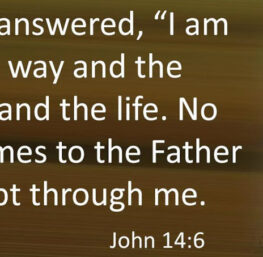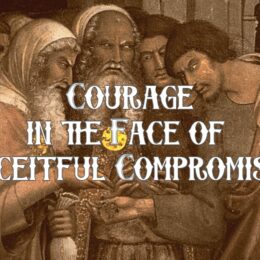
Acton Institute | by John Couretas | 4/14/2010
This class of the very poor – those who are just on the borders of pauperism or fairly over the borders – is rapidly growing. Wealth is increasing very fast; poverty, even pauperism, is increasing still more rapidly. – Washington Gladden, Applied Christianity (1886)
For three decades, we have experienced a social engineered inequality that is really a sin – of biblical proportions. We have indeed seen class warfare, but this war has been waged by the wealthy and their political allies against the poor and the middle class. – Jim Wallis, Rediscovering Values: On Wall Street, Main Street, and Your Street (2010)
One of Jim Wallis’ long running aims at Sojourners is to cast himself as a moderate or centrist (God is not a Republican. Or a Democrat). This is howling nonsense to anyone who pays attention to his policy prescriptions or watches the progressive/liberal company he keeps. With his new book, Rediscovering Values: On Wall Street, Main Street, and Your Street (Howard Books, 2010), Wallis drops all pretense to holding the center as he piles on with the horde of religious left activists and others now demonizing Wall Street.
The book, a clip-file pastiche of easy eat-the-rich moralizing, relentlessly pushes for the sort of collectivist policies that even the Obama administration is reluctant to take on directly (to Wallis’ chagrin).
The Wallis publicity machine casts him in the tradition of the Hebrew prophets with their fiery visions and passion for the social application of faith. Alas, he can only scold: “It’s clear that Wall Street has learned nothing, wants to learn nothing, and instead just wants to go back to the same old behaviors.”
With this new book, Wallis has ventured into the nation’s economic life with his cheap outrage. There, he has exposed himself as utterly ignorant of even the most basic economic principles. Not even a disinterested undergraduate halfway through a compulsory Econ 101 would make these mistakes. Case in point:
The market’s fear of scarcity must be replaced with the abundance of the loving God. And the first commandment of the Market: “There is never enough,” must be replaced by the dictum of God’s economy: namely, there is enough, if we share it.
Well, no, wrong. You cannot wish scarcity away. It is one of the most fundamental realities of economic life, involving everything from raw materials to money to the very time we have on God’s green earth. Still less can you wish away scarcity with shallow sentiment and decree that all of humanity will have enough (what is enough?) if we follow the “dictum” of “God’s economy.” Scarcity is not a Republican or a Democrat issue, you might say.
Such is the essence of Wallis’ prophetism. It is his perception that the large, dark forces of society – Wall Street, Madison Avenue, Republicans — have overpowered and oppressed the Little Guy, the one who hasn’t enough money, power, free health care, or immigration rights (insert felicitous scriptural reference here). The dark powers are large and impersonal, for the most part, in this great captivity. With the exception of, say, George W. Bush, Dick Cheney and Glenn Beck.
Because Wallis’ classic progressivist fix for social ills is to shift greater power over the economy into the hands of Caesar, he must think that no one actually needs to understand anything about the economy or fiscal policy. Caesar has it under control, or will figure it out soon. But, again, reality is difficult for Wallis. Is your boss, who might be a Republican or someone who watches Glenn Beck, driving the cube farm a little too hard? Wallis has a solution in the form of the generous labor laws and vacation policies of the European Union. Amazingly, he seems to be unaware that the EU project, groaning under the weight of welfare policies that Wallis can only dream about, is teetering on the edge of the precipice.
As for wealth creation, that happens as magically as the medieval alchemist changes lead into gold. In Wallis’ economic phantasmagoria, it is merely a given that there is wealth. It will always be there — and it’s there for the taking. Wallis’ job is not to understand how wealth is created but to moralize, and condemn the money changers: the people behind Reaganomics, Enron, Gordon Gekko, Bernie Madoff, the evil bankers in “It’s a Wonderful Life.” He even unearths an anecdote to show how the genetic malevolence of merchants was behind the Great Plague of Marseille – in 1720.
In his new book, Wallis does commit two or three grudging paragraphs to acknowledge that there might be some upside to the market economy. But his heart’s not really in it. “Markets,” he says, “are the best ways that humans know how to create goods and services, although they often fall short in fairly distributing them.” Ah yes, where is the Grand Distributor when you really need him? In his mind, the economic problem rests with those who “preside over the market.” Again, back to Econ 101. You can participate in the market, with mutually beneficial exchanges. You might even cheat your neighbor in the market, if there’s darkness in your heart. But no one or no government can “preside” or manage the economy from the commanding heights. It’s been tried before.
Likewise, Wallis devotes two lines in the book to the notion that “rich and poor alike can be villains and heroes.” That would be, ahem, a simple orthodox Christian belief about sinful humanity. But what about all those rich people who don’t like to share in God’s economy? It doesn’t take long for Wallis to begin castigating the “wealthy” for villainously changing the meaning of redistribution in most people’s minds “into almost a swear word.” Vile sin!
Thus, Wallis takes it upon himself to redefine the redistribution of wealth, making it more palatable with quotations from Scripture and the American Founders that — he believes — support his view. There’s just one problem. Redistribution will, Wallis concedes, require “new regulation and responsibility by our government” to make it all right. “A new ethic of social responsibility will require a new framework of new social regulation in which critical entrepreneurial activity can best take place,” he announces. That’s it! We’ll have a new “framework” of government regulation to incentivize entrepreneurs just waiting around for permission from the regulators to get started.
What’s Wallis’ solution to the market’s ills? Well, voilà, “green energy” jobs, which have the double advantage of guilt-free economic activity supported by massive government intervention. Nevermind that it’s Utopian as well. Wallis has the audacity to call for the “rewiring” of the entire U.S. energy grid (give that about 30 seconds of serious thought). His cure for decaying urban cities like Detroit? Gardening and animal husbandry on the land that hundreds of thousands of people have vacated in search of better opportunities elsewhere. Presumably, they’ll be wooed back at the prospect of new careers in chicken farming and sheep herding. But returning Motown to the Midwest prairie will also, according to Wallis, be accompanied by converting those rusty old auto plants into windmill factories for the generation of clean energy. Prophet Wallis reminds us that the total conversion to clean energy will require not just “a change in the energy system” but\… you guessed it\… “a change of heart.”
The free market, in his mind, is also a grave threat to American democracy:
… the real battle now is not capitalism versus socialism, but the unrestrained market versus genuine democracy. We have seen the tyranny of the all-powerful market; and it is time to reassert our best and most basic traditions of democratic accountability.
Is this how Wallis plans to bring business people and entrepreneurs into his moralizing orbit? Does he really think that castigating business people will have them falling all over themselves to build the clean energy economy? It needs to be said, first of all, that the U.S. economy is not “all powerful” or “unrestrained” but a highly regulated mixed economy. There is a large and growing participation by the government at all levels in the private sector, most recently in health care, autos and mortgage banking. Big plans are afoot to regulate the energy business, under cap and trade schemes, to save us from global warming. Again, Wallis seems to have missed this.
While Wallis’ prescriptions for the “reform” of the U.S. economy are laughable, his influence on young people is not. Wallis himself brags that half of his audience is under 30. These are young people, he says, who “want to follow after the Jesus who proclaimed the good news to the poor, freedom for the oppressed, and the year of Jubilee!” This is the Jesus understood as Divine Community Organizer, the One described by Wallis as a “fascinating character” who is all about social justice and whose most emblematic act is the overturning of the money changers’ tables in the Temple. Don’t expect the 20-somethings who imbibe this stuff to champion economic liberty anytime soon.
In a January talk at the Brookings Institution to tout his new book, Wallis claimed that the “faith community” was perceiving economic issues more and more as moral questions. So far, so good. But this moral searching in his view calls for a more activist government to strike better “balance” on economic questions. Back to Caesar, again.
At Brookings, Wallis also made it clear that he wasn’t really all that wedded to the idea of morality rooted in faith – a strange sentiment for a Christian activist or a modern day Prophet. “Religion has no monopoly on morality,” he insisted. “We make that clear. Religion has no monopoly on morality. We need more than a religious movement.”
Well, at least Wallis is honest about that. But, and especially when grappling with economic issues, we need more than pious denunciations and cheap moralizing. We need some real understanding of economics.
John Couretas is director of communications for the Acton Institute.



